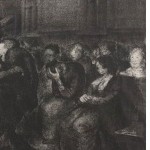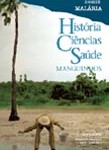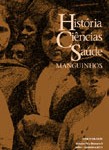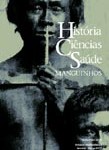June 2023
The 5th Luso-Brazilian Conference on the History of Tropical Medicine (5LBMHTM) takes place in Lisbon, on June 14-16, 2023, and in Braga on June 19-20, 2023. This year, the conference’s main theme is “One Health and new historical insights after pandemics”.
The congress is organized by the Interuniversity Center for the History of Science and Technology (CIUHCT), the Landscapes, Heritage and Territory Laboratory/Associate Laboratory for Research and Innovation In Heritage, Arts, Sustainability And Territory (Lab2PT/ IN2PAST, University of Minho), The Institute of Hygiene and Tropical Medicine (IHMT, NOVA), the Oswaldo Cruz Foundation (Fiocruz), the Center for Interdisciplinary Studies and Research on Emergencies in Public Health (NIESP/Fiocruz), and the Historical Museum/Department of Preventive Medicine, Faculty of Medicine, University of São Paulo.
Following the previous congress, which focused on the discussion of planetary health on the United Nations Agenda, this meeting is a privileged moment to bring together national and foreign researchers to promote a forum for reflection and discussion on the concept of One Health, as the result of the most recent discussion on the COVID-19 pandemic.
It brings together the history of medicine and public health, as well as social and environmental history in local and regional geographies and in different international, transnational, and global contexts.
To participate in the online sessions, it is necessary to register here. Only registered participants will receive access to the links for each program session.
Check the links for online access
Check the Conference Programme, here
Read about Tropical Medicine in HCS-Manguinhos:
The emergence of dengue as a virological challenge Although outbreaks were reported throughout the twentieth century, dengue was barely known in the Americas until the epidemic of dengue fever in Cuba in 1981.
Fiocruz carries out studies with mosquitoes to reduce transmission of dengue fever The Oswaldo Cruz Foundation (Fiocruz) has taken an important step into the project “Eliminate Dengue”, a natural method to block dengue virus transmission in Aedes aegypti.
Brazilian doctor appointed Assistant Director of PAHO Dr. Jarbas Barbosa da Silva Jr. received his medical degree from the Federal University of Pernambuco, Brazil, and specialized in public health and epidemiology at the National School of Public Health, Oswaldo Cruz Foundation (FIOCRUZ) in Rio de Janeiro. He will begin his five-year term on 1 February 2023.
Historical epidemiology in global health decision-making This article analyzes three examples of public health campaigns.
Chagas disease: science, health and society The year of 2019 marks 110 years of one of the great achievements in Brazilian science: the discovery, by Carlos Chagas, a young researcher at the Oswaldo Cruz Institute, of the disease that bears his name.
Trópicos, microbios y vectores El artículo analiza el modo como los investigadores argentinos y brasileños construyeron sus programas de investigación referidos a las enfermedades tropicales.
Leishmaniases from a historical and global perspective Brazil is the country in the Americas with the most cases of this disease in its three forms: cutaneous, mucocutaneous, and visceral.
International cooperation for equity in health This article analyzes the work of international organizations in health and the priorities of developing countries in this field since the 1990s.
‘Combating’ tropical diseases by the German language newspapers published in Brazil Article by Sílvio Marcus de Souza Correa
Women made visible: the Institute of Tropical Medicine in Portugal This work in progress looks at the Institute’s scientific journal to identify the participation of women in tropical medicine between 1943 and 1966.
Historia de la enfermedad de Chagas en Argentina El artículo de Juan Pablo Zabala (Universidad Nacional de Quilmes/Conicet) presenta los puntos centrales de la trayectoria histórica de la enfermedad de Chagas en Argentina.
Chagas disease: science, health and society The year of 2019 marks 110 years of one of the great achievements in Brazilian science: the discovery, by Carlos Chagas, a young researcher at the Oswaldo Cruz Institute, of the disease that bears his name.
Brazilian researchers have successfully tested a vaccine for Chagas disease Lab mice were observed after being infected with Chagas. While all animals that were not vaccinated died, 80% of those immunized survived.
Cattle trial cuts human sleeping sickness Cattle were given parasite-killing drug and area was sprayed with insecticide. This cut cases of human sleeping sickness by 90 per cent in Uganda
Health diplomacy in Africa It addresses regional dynamics in health diplomacy between 1920 and 1960. The article explores the alignments, divergences, and outcomes with respect to the strategies and policies pursued by colonial powers and independent African states.
“Colonies gave more than what they received in return” Rita Pemberton explains that although the colonies were rich in natural resources, this wealth was not reflected in the population’s health or sanitary conditions.
Wellcome Collection for Brazilian researchers See how to apply for a fellowship.
Railroads and tropical medicine in Brazil This paper by Jaime Benchimol and André Felipe Cândido da Silva, our former and current science editors, shows how railways supported the development of tropical medicine in the First Republic.
The tropics, science, and leishmaniasis The article investigates the process of circulation of knowledge which occurred during the first decades of the twentieth century between South American researchers and Europeans.
Health and development in Amazonas state This article shows that American cutaneous leishmaniasis emerged as a major health problem in Amazonas in close association with the political, economic, and socioenvironmental changes seen in the period.
Leishmaniases from a historical and global perspective Brazil is the country in the Americas with the most cases of this disease in its three forms: cutaneous, mucocutaneous, and visceral.
The establishment of the Manguinhos laboratory, 1894-1902 In order to understand the 1900 establishment of the Federal Serum Therapy Institute of Manguinhos, Rio de Janeiro, this paper analyzes the circulation of knowledge and international disputes surrounding vaccines.
Eradication efforts against global disease will be the focus of an exhibition Countdown to Zero, a new exhibition about scientific and social innovations that are ridding the world of ancient afflictions, will open at the American Museum of Natural History on January 13, 2015.
Chagas disease: science, health and society The year of 2019 marks 110 years of one of the great achievements in Brazilian science: the discovery, by Carlos Chagas, a young researcher at the Oswaldo Cruz Institute, of the disease that bears his name.
Chagas disease and tropical medicine in Brazil, 1908-1909 The disease was discovered in 1909 by the Brazilian sanitary physician Carlos Chagas at the Oswaldo Cruz Institute.
Read about Covid-19 in HCSM:









